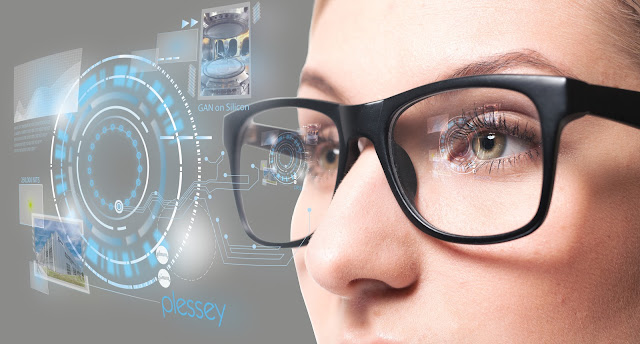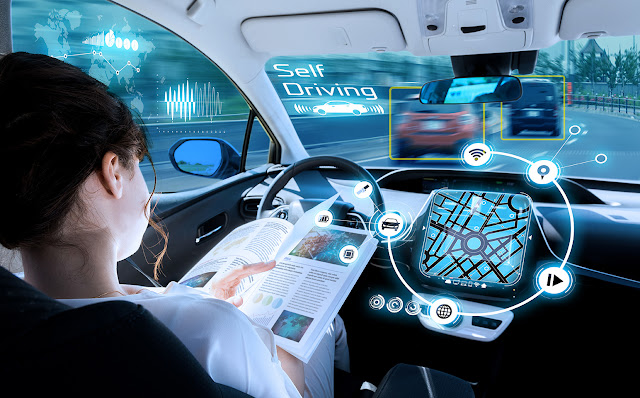6 New Technologies That Will Become Mainstream Soon
These eleven technologies have been a staple of science fiction for decades, but they're finally coming to life. Read on to discover more about Smartwatches, Quantum sensing, and Self-driving cars. Plus, learn about the latest innovations in medical imaging and the future of artificial intelligence. If you're interested in these innovations, you'll want to check out our other articles!
Smart Glasses
The first significant use of smart glasses is for video collaboration, allowing people to communicate without leaving their current location. Smart glasses can enhance several sectors, including field service, complex engineering support, assembly line productivity, compliance, and quality control.
While the technology is still in its early stages, wearable technology has the potential to replace smartphones for a variety of tasks, from social interaction to payments. Even though it is not widely used yet, smart glasses have a lot of potentials to transform industries.
Facebook CEO Mark Zuckerberg has announced that Facebook will release a pair of smart glasses branded with the Ray-Ban name in 2021. AR smart glasses, which can let users see real-world objects enhanced with AR, are on the horizon. Meanwhile, Snap is working to bring AR Snapchat Spectacles to developers and creators to test their capabilities before the mainstream market release. For instance, Faisal Galaria, CEO of the augmented reality digital advertising company Blippar, believes VR will become widely available through 5G.
Smart Watches
There are many advantages to smartwatches, but they aren't the only reasons to buy one. Smartwatches can be used for messaging, tracking fitness goals, listening to music, and making phone calls, among other functions. While smartwatches aren't quite as advanced as smartphones, the features that make them attractive are still valuable to consumers. Hopefully, these devices will become mainstream soon.
While Samsung may be the most significant player in the smartwatch space, it isn't the only one. Its first smartwatch, the Gear, debuted in 2002. The device had a 160x160 display and two megabytes of internal memory. It also included Palm applications, a calculator, and a stylus. Microsoft also jumped into the smartwatch space in 2015 with the Galaxy Watch, working with manufacturers such as Timex, Fossil, and Suunto. Based on Google's Wear OS and built on Android, these watches are a good start.
Quantum Sensing
Known as quantum sensors, they utilize the power of qubits to detect the most minor changes in the environment. They may one day be used to monitor geologic activity or even detect the early stages of cancer. In fact, the Pritzker School of Molecular Engineering has already developed a method of measuring energy and temperature levels in a system by analyzing the signals produced when qubits are prepared to sense the system.
This technology could be used in self-driving cars, portable scanners, and other applications. The devices use quantum theory to detect the difference between two electrons in different energy states but are expensive and complex. These devices may be used for medical monitoring or to detect subsurface voids or buried infrastructure in the short term. While quantum sensing has a long way to go before it becomes widely available, it is already transforming many industries.
Self-driving cars
Autonomous vehicles, also called self-driving cars, are becoming a reality. Tesla is the most prominent company developing this technology, which will allow the car to drive itself with minimal human input.
The cars will use different sensors to safely navigate the roads, and some may even be used as taxis or commercial vehicles. But before they're widely available, these vehicles must pass rigorous testing.
One of the biggest challenges to developing self-driving cars is the lack of universal technical standards and regulations. The initial cost of developing these automated vehicles is prohibitive. The technology will be widely used in niche markets before spreading to the consumer market. However, many businesses, including Uber and ride-sharing companies, are positioned to be early adopters of self-driving cars. In addition to passenger vehicles, autonomous vehicles will also be used in delivery vehicles, public transit, and senior and disabled-accessible transport.
Biometrics
Although biometrics may be new to many, it's growing in popularity. As IAM solutions become more sophisticated, security teams are increasingly implementing biometrics. In fact, according to a study conducted by Forrester Research, 60 per cent of global security decision-makers plan to use biometrics by 2021. However, not all security leaders are on board with biometrics' widespread adoption. Some caution against treating biometrics as a panacea to solve the security challenges faced by enterprises.
Although there are some challenges involved in implementing biometric solutions in corporate settings, the technology is becoming mainstream. For example, several financial services providers already use Apple's FaceID facial recognition technology to verify consumers. Companies like Barclay's are deploying biometric technology, including finger vein reader tech, to prevent fraud in the workplace. Even the Royal Bank of Scotland is piloting biometric-based contactless cards.
Robotics
The adoption of robotics in the workplace is inevitable. There is a strong likelihood that it will become the norm sooner rather than later. Due to new technological developments, many industries are already undergoing a transformation, including machine learning and robotics. While automation may eventually replace workers in some industries, such as healthcare workers and food servers, the advancement of education and training may help offset the adverse effects. In the coming years, we'll see robots performing tasks not previously performed by humans.
Robocop and Pepper's robots prove themselves in retail settings, but they are not quite there yet. Human interaction is the hardest part of retail jobs for robots. The robots, developed by SoftBank Robotics, can interpret human emotions and interact verbally with humans. Robots are already on the job in malls in Japan. They are now being tested at the Mall of America in Minneapolis. Tally robots have the potential to become popular in retail settings.
Read More: https://goodthing2.com/looking-for-a-cake-box-near-me/









No comments